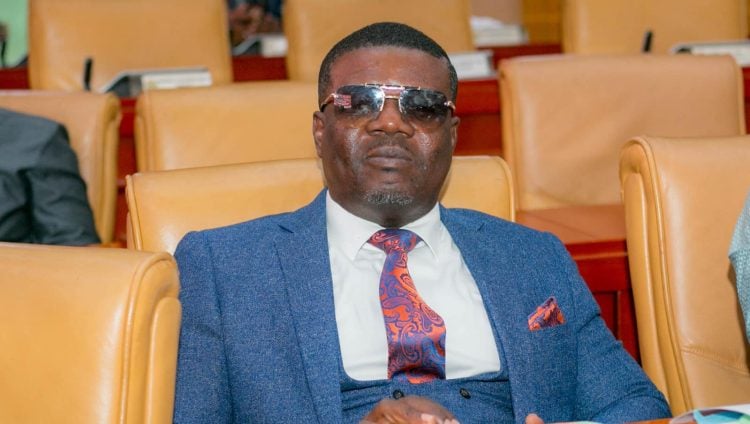Rockson-Nelson Etse Kwami Dafeamekpor, the Member of Parliament for South Dayi, delivered a scathing critique of the Supreme Court’s recent ruling, claiming that the judiciary has adopted a political bias in its decision-making. This ruling, which was handed down by a five-member panel led by the Chief Justice, involved a stay of execution regarding the Speaker of Parliament, Alban Bagbin’s, earlier declaration that the seats of four MPs were to be deemed vacant due to a change of allegiance. This stay was granted following an ex parte application submitted by the Majority Leader, Alexander Kwamena Afenyo-Markin. In a conversation with Joshua Kodjo Mensah on Starr Today, Dafeamekpor expressed his disbelief and concern over the legal foundation—or lack thereof—supporting the court’s decision, questioning how a court could permit such a case to proceed without substantial parliamentary direction.
During his assessment of the situation, Dafeamekpor argued that the ramifications of the Supreme Court’s move extend beyond mere legal technicalities, hinting at deeper political undertones. He voiced skepticism about the legitimacy of the court’s ruling, stating that the Speaker only informed the House of his decisions rather than issuing an official ruling. Dafeamekpor’s commentary cast doubt on the rationale behind the court’s intervention, emphasizing that the Speaker’s actions did not constitutionally warrant the judicial review being pursued. This approach led him to ponder the wider implications of allowing such legal proceedings to take place without critical scrutiny, especially when the essence of parliamentary authority is in question.
In his remarks, Dafeamekpor did not shy away from accusing the Supreme Court of engaging in political activities. He proclaimed that the judiciary appears to have transformed into a political institution, insinuating that the motives behind the recent ruling are politically charged rather than being strictly grounded in legal precedent. This sentiment was punctuated by his assertion that the court’s decisions increasingly seem disassociated from judicial principles. By proclaiming the Supreme Court’s actions as politically motivated, he seeks to position these developments within a broader narrative, one where the independence of the court may be questioned.
Dafeamekpor highlighted the impropriety of granting an order in perpetuity based solely on an ex parte application, arguing that such orders are traditionally temporary, serving their purpose only for a finite period—usually lasting around nine days at most. He expressed his dissatisfaction with the notion of granting extended stays or interlocutory orders without adhering to the standard judicial process, which entails providing notice and allowing for a formal hearing. His claims pointed to a troubling inconsistency in how the court applies its regulations and processes, which he characterized as emblematic of a “state of confusion” within the judiciary.
Dafeamekpor’s criticism did not stop at procedural issues; he drew parallels between the current ruling and historical cases of political disenfranchisement, notably referencing the prolonged lack of representation for citizens in the SALL constituency. He pointedly questioned the seeming selectivity of the court’s engagement, bringing to light the incongruity of its immediate concern for the fate of these four MPs while neglecting other significant cases. His observations shed light on a perceived bias in judicial intervention, provoking further inquiry into the principles guiding the Supreme Court’s actions.
As he concluded his remarks, Dafeamekpor made it clear that the National Democratic Congress (NDC) would not ignore the implications of the Supreme Court’s decision. He insisted that the party would respond politically to what he regards as a politically-tainted ruling. His confident assertion about engaging the situation politically suggests not only a readiness to contest the ruling but also a recognition that the intersection of law and politics will be at the forefront of future struggles involving the opposition party. The tensions surrounding this decision invite further scrutiny into the complex relationship between the judiciary and parliamentary authority in Ghana, reflecting larger issues of governance, representation, and the role of legal institutions within the political landscape.














